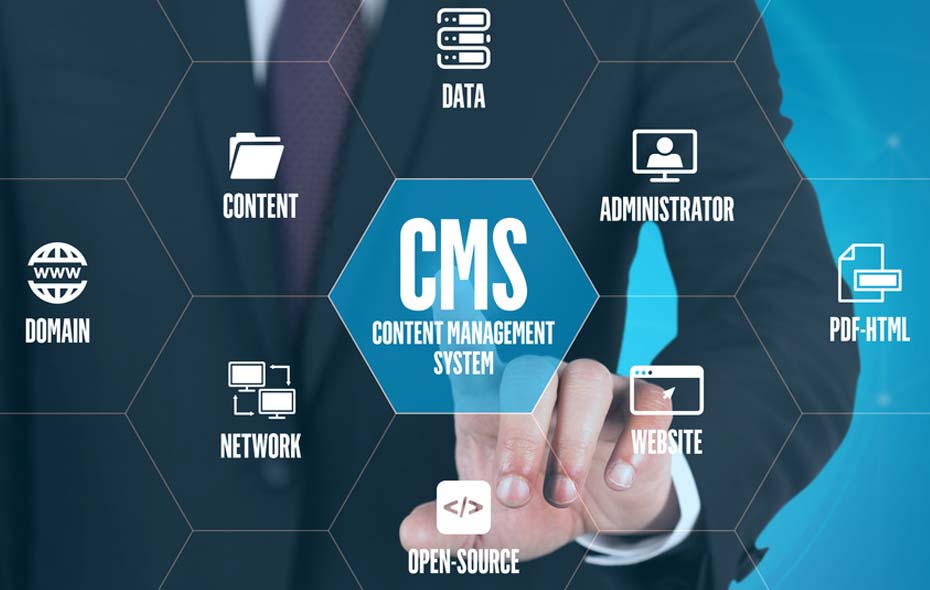Get in touch
In recent weeks blogger Alain Veuve has dealt with topics as disparate as E-Commerce, content management and digital transformation. Read the executive summaries to find out his take on the status quo and where we are headed – or click the respective link to read the entire post in German.
Digital transformation has long been one of the buzzwords in the industry. Today, everyone is transforming something, according to Veuve. This is basically a good thing, says Veuve, as it moves the focus from isolated solutions to a more strategic process. However, the term itself is misleading – in both of its components.

he problem with the word “Transformation” is that it implies a beginning and an end. And this is exactly how most decision makers view the buzzword “Digital Transformation”. They realize that the transition to a more digital society also impacts their businesses. And that they need to act. But, once a business has played “catch up” with its competitors and has been transformed and readied for the digital age, most executives presume that the work is done.
Reality is drastically different, however. Technological progress is exponentially accelerating, new technology is constantly entering the market. We are quick to adopt those technologies that help us or make our lives easier. But this is a continuous process based on (perceived) needs – which also implies that the process never ends. Digital transformation is but one stepping stone and marks the beginning of an era, not the end. Those businesses, and individuals, that realize this and are willing and able to adapt continuously, will survive and thrive.
The term implies that societal and economic change is to be found exclusively in information technology. However, industries other than IT have also experienced significant change in the recent past – and continue to do so. Veuve cites Healthcare as an example, and cautions businesses to not just bet on digitilization. Those that do, says Veuve, will be surprised how other industries are also transformed again and again.
According to Veuve the term “Digital Transformation” helped us to even consider the changes in society and the economy and then to deal with them accordingly. Now that that job is done though, he asserts that a new buzzword is needed – not just because it's outstayed its welcome, but also, as mentioned above, because the term itself is misleading.
Veuve's proposal: Perpetual Disruption. The term implies that change is constant, that change has significant consequences and that it is often rapid as well as unexpected. These businesses are confronted with exactly those challenges, he concludes.
Why we must replace the term Digital Transformation!(March 30, 2015)

Veuve's views of the CMS industry have changed in recent months. As early as 2013 he voiced the opinion that vendors of web content management systems should develop comprehensive solutions, which enable a consistent customer experience across all devices and channels.
This advice is still solid for today's solutions; however, when it comes to CMS in the future, Veuve thinks this approach no longer holds true. Why? Because there will be no projects that are based solely on CMS. The result is that the CMS market as we know it will disappear.
Veuve's recent experiences in the enterprise arena support his case. Projects generally are more complex, more expensive and more resource-intensive. And CMS usually plays a subordinate role to processes, functionality, ERP integration and E-Commerce.
Digital transformation is progressing rapidly. Companies need to provide an all-inclusive customer experience, both on- and offline. For these reasons, developments in the industry will not stop at the enterprise level, changes will also impact SMBs. The relevance of CMS in future web projects will therefore steadily decrease.
How will this affect Internet agencies? They will continue to specialize to survive. At the same time they are already shifting the emphasis of their business from CMS to E-Commerce.
The effect for industry participants is of a dual-nature. On the one hand, the boundaries between content management and other enterprise software are becoming increasingly diffuse. Secondly, the paradigm shift to web experience management, which is already taking place, won't differentiate between all things Web and all other things in the near future: The focus will be on Enterprise Experience Management.
In Veuve's opinion, the front end will thus comprise all processes that require interaction with stakeholders. In the future, systems that are implemented in this manner will have the same importance for companies as ERP systems have today. There are, however, several things that set apart ERP from enterprise experience management solutions: visibility, flexibility and the constant need to integrate with other systems. An inadequate system, contrary to ERP, is immediately visible to the client.
Veuve says that enterprise experience software will continue to innovate. For example, platforms will become more universal. Content management as such will become a commodity. Platforms and technology will gain in importance; choosing the appropriate CMS will depend on how it fits into the project puzzle. Which CMS vendors will benefit the most from this trend remains to be seen, states Veuve.
The CMS market as we know it will disappear!(April 7, 2015)

Magento fundamentally changed the E-Commerce industry. One of the co-founders of Magento, Yoav Kutner, set out in 2012 to repeat his success with a new start-up, Oro and its products OroCRM and Oro Platform, an Open Source business application solution. AOE has been implementing projects using Oro Platform and OroCRM for some time now and the experiences have been extremely positive.
On April 8, Oro announced its newest product, OroCommerce. According to Veuve, OroCommerce fulfills an urgent requirement of the market – that of a dedicated Open Source B2B E-Commerce solution.
The product offers a viable alternative to Magento, says Veuve. Even though AOE has successfully developed countless B2B projects with Magento, the solution isn't always a perfect fit for smaller companies due to the high degree of customization that is often needed to implement a project. In addition, there aren't many service providers in the enterprise sector that can implement large global B2B E-Commerce projects that need to integrate with third-party systems.
Now, OroCommerce is likely to fill that gap, asserts Veuve. And he backs the claim with the following:
A new E-Commerce revolution? OroCommerce for B2B(April 8, 2015)